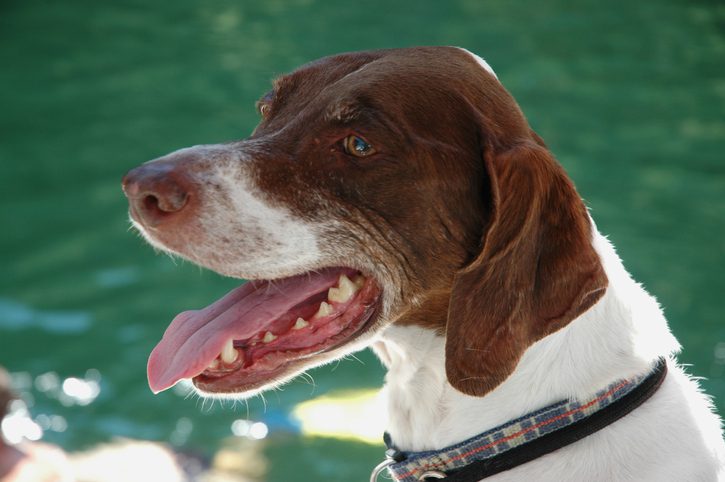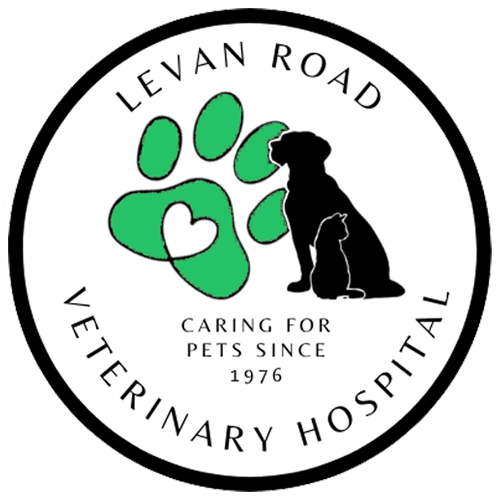7 Reasons Why Your Dog is Panting
Unlike us humans, dogs are not able to sweat when they become overheated, because of their thick fur. Instead, they pant—characterized as rapid, shallow breathing, usually coupled with a big lolling tongue—to cool their bodies down.
And if your dog is a short-snouted breed, like a pug or bulldog, you may hear and see your dog panting more than other canines (this is because they often have brachycephalic obstructive airway syndrome, which narrows the upper respiratory tracts).
Moreover, “behavioral panting” can occur when dogs are anxious and stressed (like when fireworks are going off or when they are separated from you—in this latter case, you should try leaving the radio on when you’re out of the house). However, there are more serious causes of panting that every owner should be aware of. Learn about seven reasons why your dog is panting by reading our Livonia, MI, animal hospital‘s article below.

Here are seven reasons why your dog is panting:
- Overexertion
- Pain
- Heatstroke
- Heart and Respiratory Problems
- Toxic or Allergic Reaction
- Cushing’s Disease
- Obesity
Overexertion
Dogs who become overly excited or engage in heavy exercise (like running or playing fetch) will pant or become out of breath. If they slow down their run and lie down, this should be taken as a sign that they need to hydrate. Make sure you always have a lot of cool water available for your dog.
Pain
A dog in pain may pant excessively, especially when experiencing something traumatizing. Other signs associated with pain include vocalization, trembling, restlessness, increased breathing rate, limping, and licking or biting at the site of the injury or pain.
Heatstroke
Like with overexertion, heatstroke can occur if your dog gets dehydrated. You can avoid heatstroke by providing plenty of fresh and cold water, limiting outside time, and never leaving your dog in a locked car with the windows up (even cracked windows do not provide enough air for a dog).
If you suspect your dog is suffering from heatstroke, move them to a shady and cool setting immediately. Of course, you should also provide them with plenty of clean water. Other symptoms may also include glazed eyes, high body temperature, and dark or bright red tongue and/or gums.
Heart and Respiratory Problems
Heavy panting can also be a sign that your dog is experiencing heart failure, pneumonia, tumors in the lungs, or choking. Other indicators include difficulty breathing and coughing. You should watch out for these signs especially if you have an older dog.
Toxic or Allergic Reaction
A dog that has ingested something toxic or something that they are allergic to can cause panting, drooling, vomiting, and lethargy. All poisonous products, such as household cleaners, human medications, and certain foods (like chocolate, onions, garlic, chives, corn on the cob, macadamia nuts, corn on the cob, avocado, Xylitol [artificial sweetener], and cooked bones) should be hidden and kept away from your dog.
Cushing’s Disease
This disease is caused when the adrenal glands release too much cortisol. An afflicted dog may pant, have excessive thirst, gain weight, have thinning skin and hair, or get a pot belly.
Obesity
Dogs that are overweight may pant as they struggle to get oxygen into their systems. If you suspect your dog weighs more than they should, you should get them in to see a vet as soon as possible, as it can lead to more serious issues like arthritis, heart failure, and minimize its lifespan.
Our Livonia, MI, Animal Hospital Can Help with Your Dog’s Excessive Panting
Although panting when the temperature is hot and after exercise is completely normal, there are other serious health issues relating to the behavior that should be addressed if the panting is excessive. If you suspect your dog is excessively panting, you should look at their gums. If they are pale white or blue, they are likely suffering to get enough oxygen.
In that case, you should consider this a medical emergency, and call our Livonia, MI, animal hospital immediately at (734) 464-6281.

